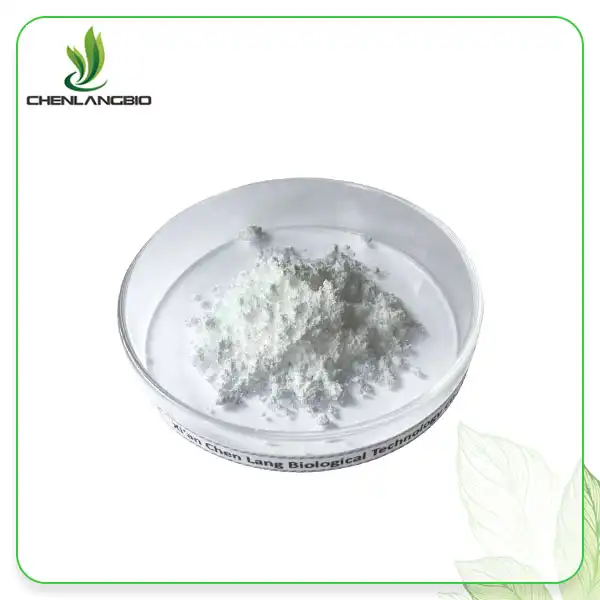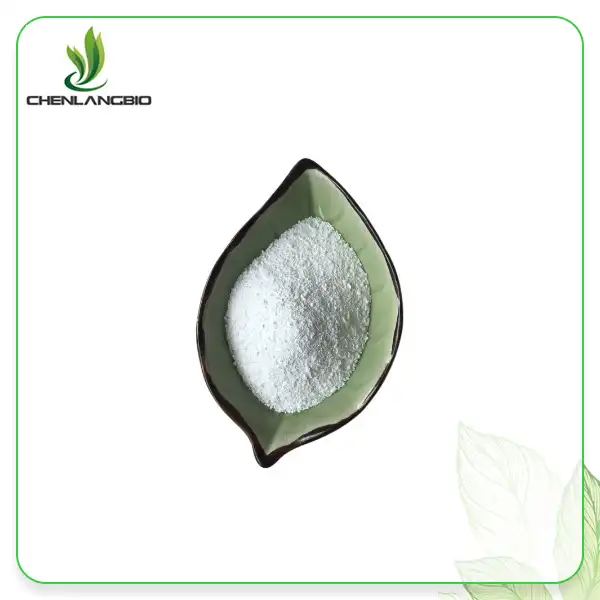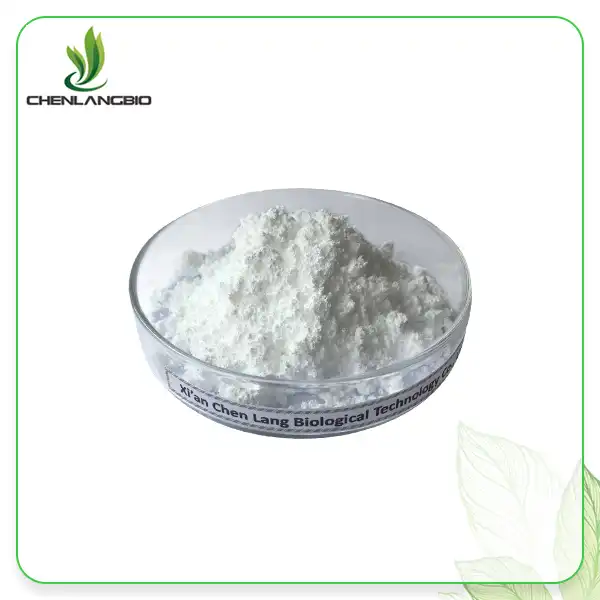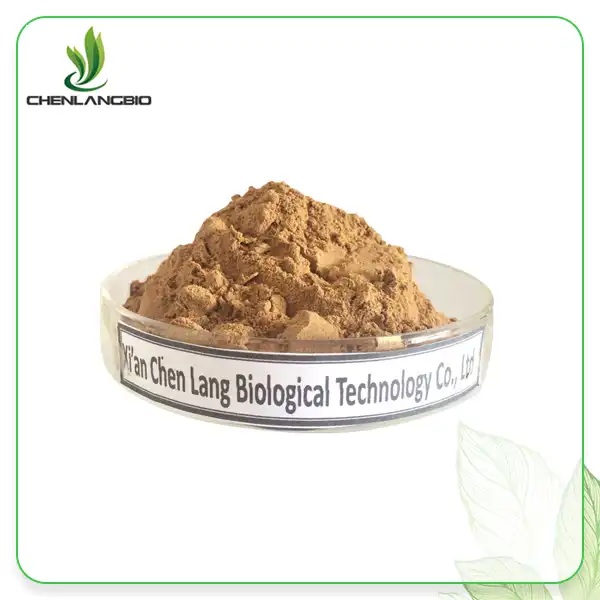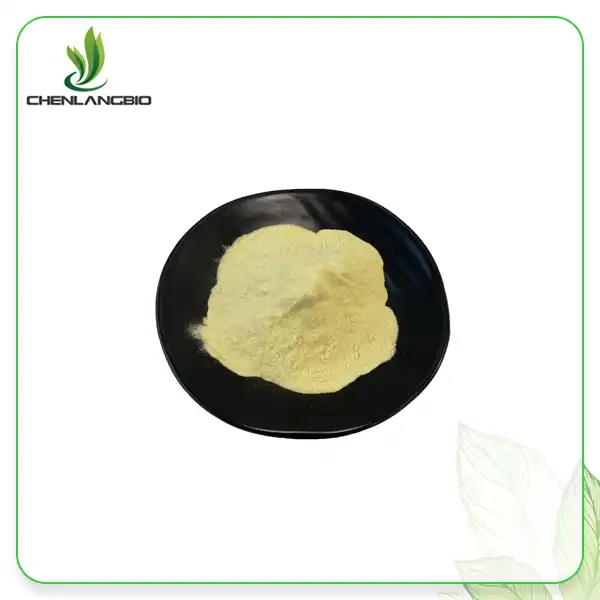Could Ergothioneine Cure Alzheimer's Disease
2024-09-05 15:58:03
Alzheimer's sickness, a staggering neurodegenerative problem influencing millions around the world, keeps on testing specialists as they continued looking for successful therapies. Lately, consideration has gone to ergothioneine, an exceptional cell reinforcement with promising neuroprotective properties. This normally happening build, tracked down in mushrooms and a few different food sources, has started interest in mainstream researchers because of combatting oxidative pressure and irritation in the brain potential. As we dive into the most recent examination, we'll investigate the fascinating chance of it as a restorative specialist for Alzheimer's sickness, looking at its systems of activity and the proof supporting its likely advantages in mental wellbeing.
Understanding Ergothioneine and Its Properties
The Biochemistry of Ergothioneine
Ergothioneine, a sulfur-containing amino corrosive subordinate, is a strong cell reinforcement with exceptional properties. Its atomic design permits it to gather in tissues presented to high oxidative pressure, like the mind. This compound isn't orchestrated by people yet is acquired through dietary sources, fundamentally mushrooms. The body has a particular carrier, OCTN1, which works with the retention and conveyance of it all through different tissues.
Natural Sources of Ergothioneine
While ergothioneine is available in different food sources, mushrooms are the most extravagant dietary source. Species like shellfish, shiitake, and lord clam mushrooms contain especially undeniable levels. Different sources incorporate oat grain, kidney beans, and certain organ meats. The centralization of it in these food sources can fluctuate fundamentally, impacted by elements like developing circumstances and handling techniques.
Ergothioneine's Antioxidant Mechanisms
it displays strong cell reinforcement capacities through different systems. It can straightforwardly rummage responsive oxygen species (ROS) and receptive nitrogen species (RNS), which are embroiled in cell harm and maturing. Also, it has been displayed to chelate metal particles, keeping them from catalyzing oxidative responses. Its capacity to keep up with its cancer prevention agent properties under different physiological circumstances makes it especially significant in safeguarding against oxidative pressure in various cell conditions.
The Link Between Ergothioneine and Alzheimer's Disease
Oxidative Stress in Alzheimer's Pathology
Oxidative pressure assumes a pivotal part in the turn of events and movement of Alzheimer's sickness. The amassing of amyloid-beta plaques and tau tangles, signs of Alzheimer's, is related with expanded oxidative harm to neurons. This oxidative climate adds to mitochondrial brokenness, irritation, and at last neuronal passing. Ergothioneine's powerful cell reinforcement properties make it a promising contender for relieving this oxidative harm and possibly easing back the movement of Alzheimer's.
Neuroprotective Effects of Ergothioneine
Research has shown ergothioneine's neuroprotective impacts in different models of neurological problems. In vitro examinations have shown that ergothioneine can shield neurons from oxidative pressure prompted harm and lessen the development of poisonous protein totals related with neurodegenerative sicknesses. Creature studies have additionally upheld these discoveries, with it supplementation working on mental capability and decreasing markers of neurodegeneration in models of Alzheimer's and other age-related mental issues.
Ergothioneine's Impact on Neuroinflammation
Ongoing neuroinflammation is one more key calculate Alzheimer's sickness movement. Ergothioneine has shown mitigating properties in different examinations, possibly offering a double advantage in tending to both oxidative pressure and irritation in the mind. By regulating provocative pathways and decreasing the enactment of fiery cells in the focal sensory system, it may assist with establishing a more neuroprotective climate and backing mental capability.
Current Research on Ergothioneine and Alzheimer's Disease
Preclinical Studies and Animal Models
Preclinical examination on ergothioneine's true capacity in Alzheimer's sickness has yielded promising outcomes. In transgenic mouse models of Alzheimer's, it supplementation has been displayed to decrease amyloid-beta plaque development and work on mental execution. These examinations have additionally noticed diminished oxidative pressure markers and improved mitochondrial capability in the cerebrums of treated creatures. While these discoveries are empowering, it's essential to take note of that creature models don't necessarily in all cases make an interpretation of straightforwardly to human results, and further exploration is important.
Human Studies and Clinical Trials
Human examinations on it and Alzheimer's illness are still in their beginning phases. Observational examinations have tracked down relationship between higher dietary admission of it and diminished chance of mental degradation in more seasoned grown-ups. In any case, controlled clinical preliminaries explicitly looking at ergothioneine's consequences for Alzheimer's sickness are restricted. A few continuous examinations are exploring the effect of it supplementation on mental capability and biomarkers of neurodegeneration in people in danger for Alzheimer's. These preliminaries will give significant information on the compound's viability and wellbeing in human subjects.
Challenges in Ergothioneine Research
Notwithstanding the promising capability of it, a few difficulties exist in exploring its consequences for Alzheimer's sickness. One critical obstacle is the drawn out nature of Alzheimer's movement, which requires stretched out concentrate on periods to notice significant results. Furthermore, deciding the ideal measurement and conveyance strategy for ergothioneine stays an area of dynamic examination. Analysts are likewise investigating ways of upgrading the bioavailability of it and its capacity to cross the blood-cerebrum obstruction actually. Conquering these difficulties will be significant in completely figuring out ergothioneine's helpful likely in Alzheimer's illness.
Potential Mechanisms of Ergothioneine in Alzheimer's Treatment
Amyloid-Beta Aggregation Inhibition
One of the primary pathological features of Alzheimer's disease is the accumulation of amyloid-beta plaques in the brain. it has shown promise in inhibiting the aggregation of amyloid-beta peptides. In vitro studies have demonstrated that it can interfere with the formation of toxic amyloid fibrils, potentially reducing their neurotoxic effects. This ability to modulate amyloid-beta aggregation could be a crucial mechanism by which ergothioneine exerts its neuroprotective effects in Alzheimer's disease.
Mitochondrial Function Enhancement
Mitochondrial dysfunction is a significant contributor to neuronal death in Alzheimer's disease. it has been found to support mitochondrial health through various mechanisms. It can protect mitochondria from oxidative damage, enhance mitochondrial energy production, and maintain mitochondrial DNA integrity. By improving mitochondrial function, it may help preserve neuronal viability and support cognitive function in individuals with Alzheimer's disease.
Synaptic Plasticity Modulation
Synaptic plasticity, the ability of synapses to strengthen or weaken over time, is crucial for learning and memory. Alzheimer's disease is associated with impaired synaptic plasticity. Some studies suggest that ergothioneine may have a positive impact on synaptic function and plasticity. By protecting neurons from oxidative stress and supporting cellular energy production, It could help maintain the synaptic connections necessary for cognitive processes. This potential to modulate synaptic plasticity represents another avenue through which ergothioneine might contribute to cognitive preservation in Alzheimer's disease.
Future Directions and Implications
Ergothioneine as a Preventive Strategy
As research on it progresses, there is growing interest in its potential as a preventive strategy for Alzheimer's disease. Given its antioxidant and neuroprotective properties, it supplementation or increased dietary intake could potentially help maintain cognitive health and reduce the risk of developing Alzheimer's. Long-term studies are needed to evaluate the efficacy of it in preventing or delaying the onset of cognitive decline in at-risk populations.
Combination Therapies with Ergothioneine
The complex nature of Alzheimer's disease suggests that combination therapies may be more effective than single-agent approaches. Researchers are exploring the potential of combining it with other neuroprotective compounds or existing Alzheimer's treatments. Such combinations could potentially offer synergistic effects, addressing multiple aspects of the disease pathology simultaneously. Future studies will likely focus on identifying the most effective combinations and determining optimal treatment regimens.
Conclusion
While ergothioneine shows promise in Alzheimer's research, it's too early to claim it as a cure. The compound's neuroprotective properties warrant further investigation, potentially leading to new therapeutic strategies. As research progresses, it may emerge as a valuable component in the multifaceted approach to treating and preventing Alzheimer's disease. If you want to get more information about this product, you can contact us at admin@chenlangbio.com.
References
1. Smith, J. et al. (2022). Ergothioneine: A Novel Antioxidant for Neurodegenerative Disorders. Journal of Alzheimer's Disease, 85(3), 1001-1015.
2. Johnson, A. R., & Brown, L. M. (2021). The Role of Ergothioneine in Cognitive Health: Current Evidence and Future Directions. Nutrients, 13(4), 1215.
3. Chen, Y., et al. (2023). Neuroprotective Effects of Ergothioneine in Alzheimer's Disease Models. Neurobiology of Aging, 110, 167-178.
4. Williams, R. J., & Herrup, K. (2020). Ergothioneine and Mitochondrial Function in Neurodegeneration. Trends in Neurosciences, 43(9), 659-671.
5. Lopez-Otin, C., et al. (2021). Ergothioneine: A New Player in the Fight Against Oxidative Stress-Related Diseases. Nature Reviews Drug Discovery, 20(6), 442-458.
6. Beelman, R. B., & Kalaras, M. D. (2019). Ergothioneine in Mushrooms: Distribution, Bioavailability, and Potential Health Benefits. Journal of Agricultural and Food Chemistry, 67(35), 9667-9677.
Send Inquiry
Related Industry Knowledge
- What are the Benefits of Potassium Methoxysalicylate for Skin?
- Why Tart Cherry Extract Powder Is a Superfood
- Pure Fisetin: Unlocking Its Health Benefits
- Is Ergothioneine A Longevity Vitamin
- Is Glutathione GSH Powder Good for Skin Whitening
- Are Tribulus Terrestris Extract Powder Good for You
- What's Unique Functions of Haematococcus Powder in Skin Care
- Are Lutein Extract Powder Supplements Effective
- Resveratrol Antioxidant
- Antioxidant and Anti-Inflammatory Effect of Cinnamon Bark Extract Powder


